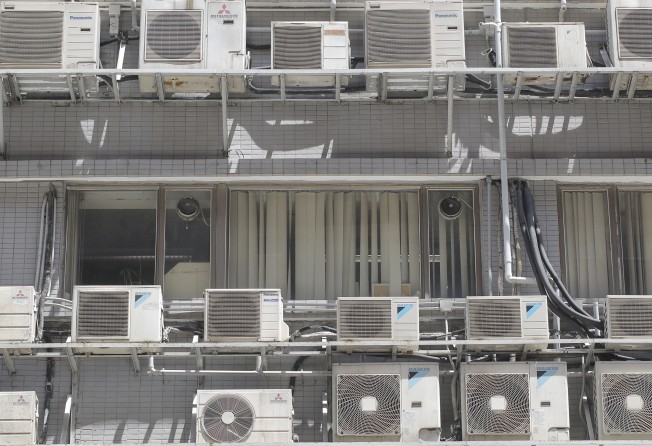Offer more subsidies so Hong Kong firms cut back on use of air conditioners

Air conditioning accounts for 25 per cent to 26 per cent of the energy consumption of the commercial and residential sectors, which together contribute 64 per cent of the overall carbon footprint of the city.
In the spirit of the Paris climate agreement, the government should provide more incentives for corporations and organisations to save energy by curbing excessive air conditioning.
Since its introduction in 2012 by the Environment Bureau, the Energy Saving Charter has encouraged corporations and organisations to adopt more eco-friendly energy policies. All participants of the charter promise to maintain the indoor temperature at between 24 to 26 degrees Celsius during the summer. But in 2016, only 3,300 premises had signed up for the charter, so it cannot fulfil its full potential. The Hospital Authority signed the charter, but did not specify which of its hospitals would participate. And none of the city’s private hospitals or private clinics has signed up.
The lack of individual control systems of air-conditioners in many office buildings may have caused the low participation rate of the scheme. In the International Finance Centre (IFC), a world-class office building where my wife works, the air-conditioners are centralised, so individual occupants cannot adjust the temperature. While the Buildings Energy Efficiency Ordinance 2012 requires the installation of temperature control devices for individual air-conditioning systems in newly constructed buildings, such requirements do not apply to existing buildings such as IFC. The Environment Bureau should work with the Electrical and Mechanical Services Department to ensure buildings constructed prior to 2012 also follow the energy-saving guidelines and adopt the Energy Saving Charter.
To further promote the charter in Hong Kong, it is not enough for the government to remind business leaders they can save electricity costs.
For large corporations paying exorbitant rents, a cut in electricity bills would be negligible. The bureau should take a carrot-and-stick approach when promoting energy-saving behaviour among corporations. To reward charter participants, significant subsidies should be provided as credits to electricity bills.
In the meantime, those who consume too much electricity with air-conditioning should face extra electricity charges proportional to their monthly rent. Only through such strong financial incentives can corporations be encouraged to adopt more eco-conscious air-conditioning policies.
Simon Wang, Kowloon Tong